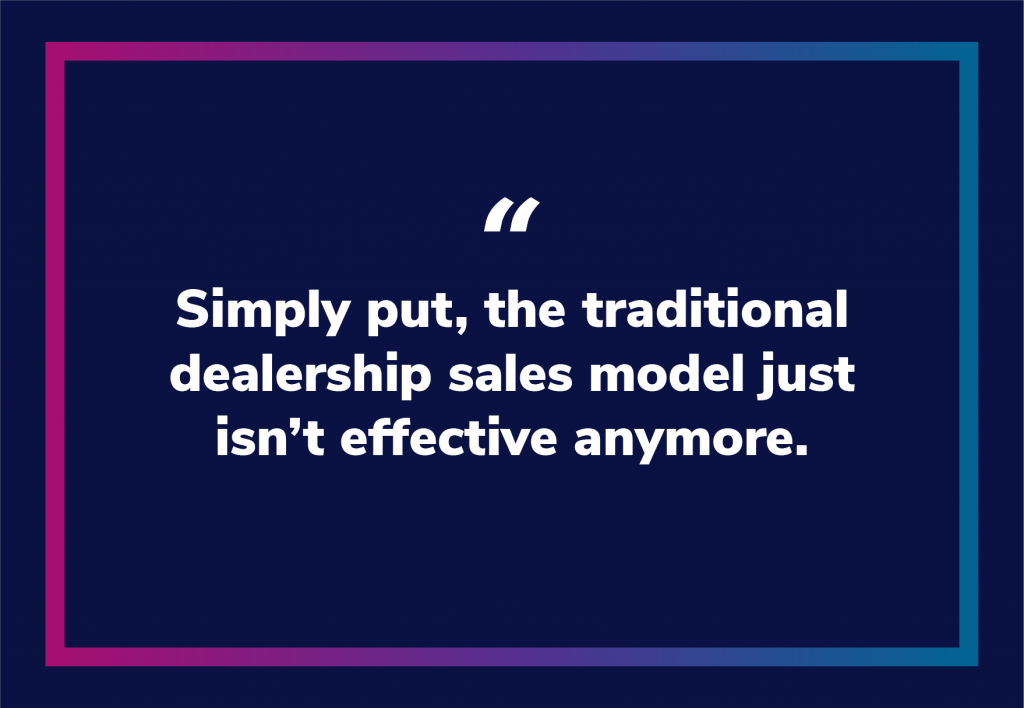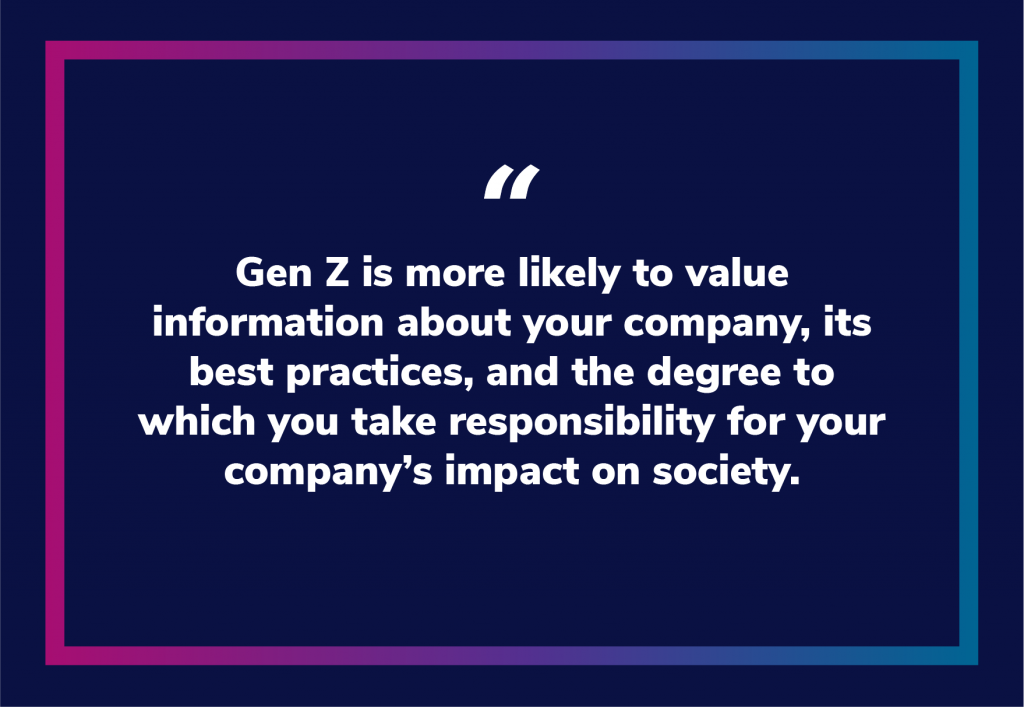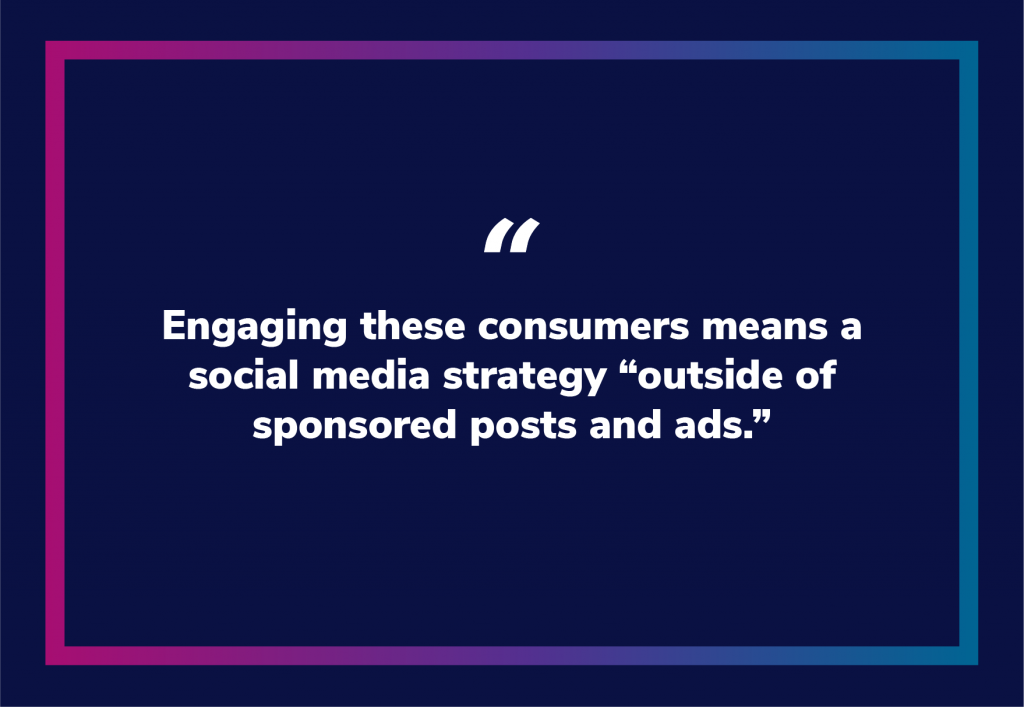Generations Y and Z — also called millennials and Gen Z, respectively — are overturning marketers’ expectations about consumer habits. This includes car-buying habits, where many of the traditional approaches to sales and marketing are no longer effective.
As the oldest millennials approach 40 and Gen Z consumers enter their mid-20s, Gen Z car buyers are becoming an increasingly important segment of the market. What’s more, Gen Z car-buying habits, though similar to those of millennials in some respects, are notably different in key ways auto-industry marketers need to consider if they wish to succeed.
Simply put, the traditional dealership sales model just isn’t effective anymore. Business leaders at dealerships and manufacturers must modernize their marketing to sell effectively to these younger, tech-savvy consumers.

How Gen Z and Millennials Approach Car Buying
Both millennial and Gen Z consumers are much different than both Generation X and Baby Boomers, with differing expectations in terms of what car brands and dealerships should provide. But Gen Z consumers now make up more than 20% of the world’s population. They are the first truly “digital native” consumers, having grown up knowing only a world with internet, social media, and mobile connectivity.
Both groups spend their time much differently than older generations. Boston Consulting Group found that collectively, 62% of millennial and Gen Z consumers have increased the time they spend at home engaged with digital media, including social media.
More importantly, Gen Z consumers are not motivated by traditional marketing methods in car buying. Their habits are shaping those of other consumers as well: “We’re really looking at [Gen Z] as the core influencers today that have a really big impact on both millennials and Gen Xers in terms of what they buy,” McKinsey reports.
Differentiating Millennials and Gen Z in the Auto Industry
Indeed, marketers tend to group Gen Z and millennial consumers together when discussing strategy and demographics. Auto-industry marketers need to differentiate the two types of buyers if they hope to engage the younger of the two generations successfully.
Gen Z performs a greater number and variety of daily activities online, for example, including how they communicate and research products. These habits are impacting the habits of other generations already. And because Gen Z will be the largest generation in U.S. history — influencing $600 billion in consumer spending, according to recent data — it will also be the most impactful generation of car buyers for the industry to date.
Building Connections with Gen Z Car Buyers
Connecting with Gen Z car buyers requires a more nuanced marketing approach compared to traditional methods. For example, messaging like “Made in the U.S.” is not as impactful for this generation as others, according to Forbes. Gen Z is more likely to value information about your company, its best practices, and the degree to which you take responsibility for your company’s impact on society.

Gen-Z consumers are also more likely to home in on the best products and deals. They are using nuanced digital methods — mobile devices and social media, for example — almost exclusively to find this information. Indeed, social media has become a critical feature in most Gen Z customer journeys. “The overall importance and scale of social media as a platform to showcase yourself has grown,” says McKinsey.
But the pathways to engaging Gen Z on social media successfully are rarely clear to auto-industry marketers. FunnelAI reviewed three years of data to find that auto dealers in particular miss roughly 78% of social conversations about their business.
Your goal should therefore be to meet those consumers where they are and join their conversations in an organic and genuine way. Your goal should be to provide information and answer questions honestly, thereby participating and being a more valuable part of the conversation.
In one example, Chevrolet used digital messaging in Facebook communities to promote the Chevy Bolt. Chevrolet has a socially conscious mission — eliminating waste and costs to car owners through airless tires — which the company communicated effectively through social channels.
“As more members of Gen Z come into the marketplace, automotive marketers will want to ensure they’re meeting them where they are, delivering messages that matter to them, says Experian. “This will help marketers sell more cars, but also begin to create relationships that could last for years to come.”
The Future of Auto-Industry Marketing Is Social
Gen Z looks to social media communities for information, recommendations, and genuine conversations. The key takeaways are: Engaging these consumers means a social media strategy “outside of sponsored posts and ads,” as Forbes describes. “Opportunities abound online for connecting with your most ideal customers. But if you don’t understand your audience’s needs, you can’t effectively build the rapport necessary to generate trust.”

FunnelAI has access to these communities and delivers the most open-minded prospects to you, allowing you to find those in-market buyers in real time and start conversations with them organically. That’s because our artificial intelligence (AI)-driven technology searches millions of posts to find those prospects who are most likely to purchase, then delivers them straight to you.
If you’d like to learn more about engaging Gen Z car buyers effectively, contact one of our auto industry experts today to learn more about opportunities for your brand.







